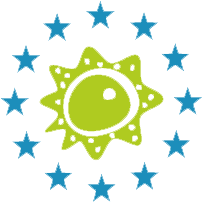Plenaries
Plenaries provide an opportunity to discuss public health challenges and scientific advances, bring together experts in cross-cutting fields to enable evidence from infectious disease research and epidemiology to be translated into improvements in public health.
The content of plenaries is proposed by the ESCAIDE Scientific Committee (10 cross-field members), who invite high level speakers to deliver inspiring presentations and address questions from the audience. There are four plenary sessions at ESCAIDE 2021, chaired by the ESCAIDE Scientific Committee. The format of each varies from panel discussions, interviews and debates.
Plenary A: Day 1 – Tues 16 Nov, 10:00-11:30: Keynote session: Communicating science and scientific uncertainty during an evolving pandemic
This session will provide ESCAIDE participants with insights into the challenges, but also the importance and the methods and approaches, to communicating scientific ‘facts’ and the scientific uncertainties in the face of a pandemic of an emerging infectious disease. The focus on this session is on the difficulties many scientists face communicating scientific data and uncertainty during a pandemic to different audiences including policy-makers, colleagues, journalists and the general public. The presentations will highlight the challenges of communicating in the context of sometimes conflicting societal, commercial and political needs and priorities, and reflect on the role of the internet and social media as channels for the dissemination of information and misinformation.
Chairs: Mike Catchpole (ECDC), Susan Hahné (RIVM, Netherlands)
Keynote speaker: Peter Piot (European Commission)
Expert panel: Marta Hugas (EFSA), Mirjam Jenny (Harding Center for Risk Literacy, Germany), Vera Novais (Observador, Portugal)
Plenary B: Day 2 – Weds 17 Nov, 10:00-11:30: Modelling epidemics in real time: coming of age?
The COVID-19 pandemic has given new insights and built evidence through real-time modelling. In this session the panel will look at the contributions of real-time modelling to handling three different stages of the pandemic: early stages and the risk for importation and spread of the virus; forecasting cases and deaths and scenario building; and in evaluating the effectiveness of different interventions. They will give an insight into the major innovations in modelling during the pandemic and how these can be translated to other communicable diseases and how modelling can inform policy and communicate risk and uncertainty to press and policymakers. Finally, they will discuss how we can improve data-readiness to be better prepared in the future.
Chairs: Bruno Coignard (Santé publique France), Magdalena Rosińska (NIPH-NIH, Poland), Adam Roth (ECDC)
Speakers: Vittoria Colizza (INSERM and Sorbonne Université, France), Jacco Wallinga (RIVM, Netherlands), Niel Hens (Hasselt University and University of Antwerp, Belgium)
Plenary C: Day 2 – Weds 17 Nov, 16:00-17:30: Digital health opportunities for public health: how far from reality?
This session will discuss insights on both the opportunities and the challenges of digital health for public health, and especially for infectious disease epidemiology, through presenting concrete examples. It will address how we can learn from digital technologies and digital health interventions used during the COVID-19 pandemic. It will cover the potential impacts of digital health on public health in the future, how to increase trust and how we move from talking about digital technologies in public health towards using digital health interventions as part public health systems.
Chairs: Vicky Lefevre (ECDC), Petronille Bogaert (Sciensano, Belgium)
Speakers: Ran Balicer (Clalit Research Institute, Israel), Gun Peggy Knudsen (Norwegian Institute of Public Health), Stefan Buttigieg (Digital Health Malta), Dipak Kalra (European Institute for Innovation through Health Data (i~HD))
Plenary D: Day 3 – Thurs 18 Nov, 17:00-18:30: The inequality pandemic
There has been great inequity in how the coronavirus pandemic has impacted, and continues to impact, different groups – at both a global and country level – for cases, deaths, vaccine coverage and social and economic impact. How can this inequality be addressed? What can scientists, public health professionals, researchers, epidemiologists and medical practitioners do to contribute? This will address these questions, framed from the interlinking perspectives of access to healthcare, inequity in health provision for different communities and law and policy.
Chairs: Frode Forland (Norwegian Institute of Public Health), Stine Nielsen (EPIET Alumni Network), and Mircea Ioan Popa (Carol Davila University of Medicine and Pharmacy, Romania)
Speakers: Kevin Fenton (Public Health England, UK), Ellen t’Hoen (Medicines Law & Policy, Netherlands), Rossalina Latcheva (EU Agency for Fundamental Rights)
